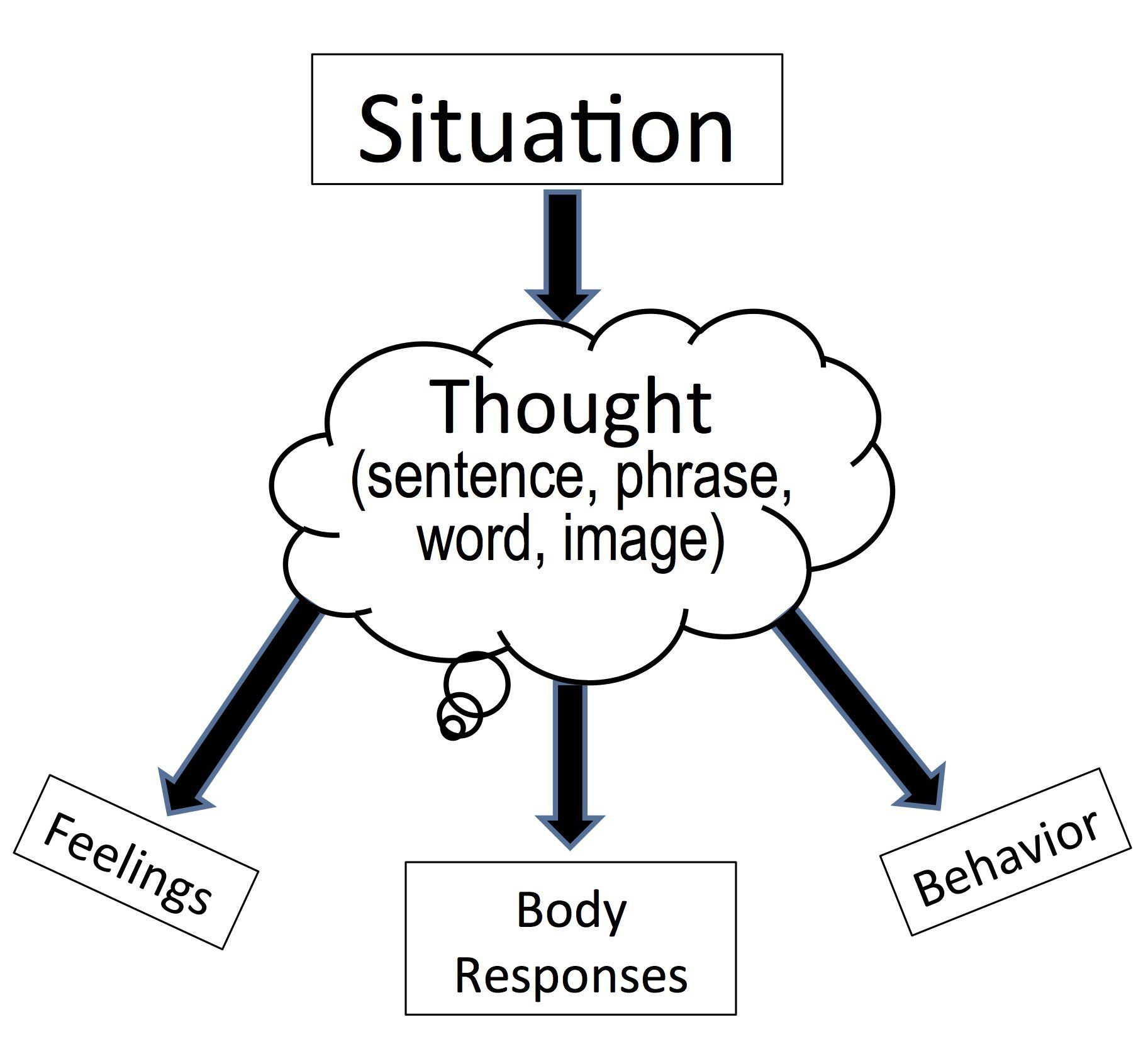Behaviors
After you have gained a basic understanding of Cognitive Behavioral Therapy by reading about the Cognitive Model
you may be interested to understand how our behaviors impact our well-being. Understanding how behaviors can maintain problems and ultimately rewire our brains is one of the two most important components in CBT.
The way we think not only impacts our feelings (both emotional and physiological)
but also directly impacts what we choose to do.

For example, if I am in Colorado driving up to Breckenridge to go skiing for the first time in 10 years, I might have thoughts about getting injured or how difficult the skiing might be after being out of practice for so long. If I have a strong belief in these thoughts it may impact my behavior in several different ways: I could decide not to ski, I might choose to get a lesson, I may ask a lot of questions about the difficulty of the runs or I might only stay on the green runs. Sometimes these behaviors can be helpful and sometimes they can be problematic. When a person’s actions become overly influenced by thoughts that have cognitive distortions (or inaccuracies) in them, it can lead to serious problems with relationships, work, overall functioning and quality of life.
The actions we take based on our thoughts or beliefs will reinforce those thoughts or beliefs. For example, if I choose not to ski because of my thoughts about injury, I am likely to continue to have the same thoughts about skiing. If I choose to ski even though I have thoughts about injury, I give myself the possibility of changing my thoughts about skiing. A person will not reduce their fears about skiing by NOT skiing.
In CBT sessions, your therapist will gently guide you towards learning strategies and tools to help you conquer fears that have been holding you back. Changing what you DO in the face of unhelpful or inaccurate thoughts is the heart of Cognitive Behavioral Therapy.
